Tamar Campaign
This project is designed to address many of the areas of our Women and Gender Programme; indeed, it is the vehicle for much of the work of this Programme. Specifically, the project works primarily with women and young girls who are the survivors of gender violence. But it also addresses male socialization, providing resources to identify the complicity of males in gender violence. Furthermore, the project deals directly with the church, enabling it to become a safe site within which to talk about and deal with gender violence and gender socialization.
This project also addresses directly the link between gender and HIV and AIDS and governance (something the Ujamaa Centre is especially well-equipped to do). The Tamar text is not only a text about gender violence, it is also a text about the failure of family and governmental structures to protect women and about the effects of gender violence on other aspects of life. This project can therefore be used as a way of integrating these related concerns.
The particular power of this project is that it that it can be implemented in almost any context. The project has been adopted in many other regional and continental contexts. With appropriate training and resources the Tamar Campaign has the potential to make a significant impact on the region.
More resources
Worker Sunday Campaign
This project is a specific Campaign about biblical justice for Christian workers, emphasising their rights to work and rest. The Campaign makes the issue of work, in all its aspects, visible to the church. The Campaign also serves to equip churches with resources to understand and address the realities of unemployment among its members. The Campaign is facilitated on Sundays, in and around the 1st May, by Christian workers and church ministers in an attempt to connect with God the worker.
WHAT IS THE WORKER SUNDAY?
During the days of Apartheid, when black working class workers were terribly exploited, dehumanized and oppressed, the church wanted to give support to those who were disregarded, those who were at the periphery of society – namely the working class.
The fundamental challenge that faced the church then was to publicly articulate its social teaching; it did this by promoting justice in the workplace through the Worker Sunday Campaigns that mobilized inter-denominational services aimed at showing solidarity with the unemployed. Emphasis during the services was placed on the Biblical message of justice, and that God in the Bible is portrayed as a Worker. As part of the campaign process; posters and pamphlets were distributed to local churches to be displayed or handed out to people. Sermon outlines, scriptures and revolutionary songs were sent to pastors and ecumenical partner organizations working in the area of economic and social justice in preparation for Worker Sunday Campaign services.
Since 1979 the Worker Sunday message focused primarily on the working conditions and worker rights, this changed after 1994 with the introduction of a progressive Constitution and Labour Laws protecting workers from exploitation. However, 21 years into our democracy, the very progressive Labour Laws are being undermined by the Owners of the Means of Production, as was evident in the Marikana Massacre on the 16 August 2012, when the bosses on London Mining (LonMin) rejected the workers proposed increase of R 12,500 a month after the longest protracted industrial action in the history of labour in South Africa.
These were the poorest laboures in the Mining Sector struggling to earn a ‘living wage’ in the midst of opulence by their capitalist bosses at LonMin. This was an economic injustice. The Worker Sunday Campaign is an attempt to say, the Church support the Workers Struggle for a ‘LIVING WAGE’
Worker Sunday leaflet

-

-
-
-
-
-
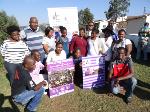
-
-
-
-
-
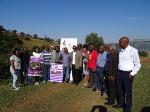
-
-
-
-
-

-
-
-
-
-
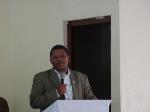
-
-
-
-
-
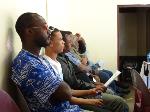
-
-
-
-
-

-
-
-
-
-

-
-
-
-
-

-
-
-
-
-
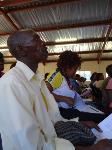
-
-
-
-
-
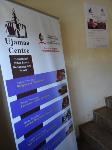
-
-
-
-
-

-
-
-
-
-
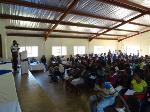
-
-
-
-
-
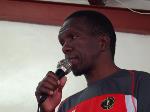
-
-
-
-
-

-
-
-
-
-

-
-
-
-
-

-
-
-
-
-

-
-
-
-
-
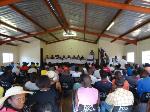
-
-
-
-